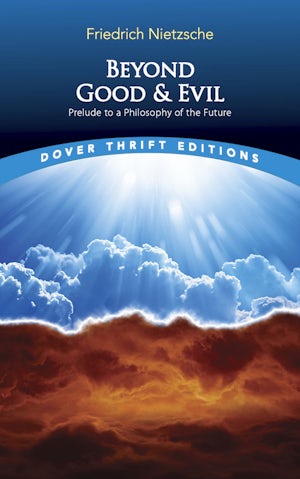After kicking open the doors to twentieth-century philosophy in Thus Spake Zarathustra, Friedrich Nietzsche refined his ideal of the superman with the 1886 publication of Beyond Good and Evil. Conventional morality is a sign of slavery, Nietzsche maintains, and the superman goes beyond good and evil in action, thought, and creation. Nietzsche especially targets what he calls a "slave morality" that fosters herdlike quiescence and stigmatizes the "highest human types."
In this pathbreaking work, Nietzsche's philosophical and literary powers are at their height: with devas... Read More
In this pathbreaking work, Nietzsche's philosophical and literary powers are at their height: with devas... Read More
Formats
Paperback
After kicking open the doors to twentieth-century philosophy in Thus Spake Zarathustra, Friedrich Nietzsche refined his ideal of the superman with the 1886 publication of Beyond Good and Evil. Conventional morality is a sign of slavery, Nietzsche maintains, and the superman goes beyond good and evil in action, thought, and creation. Nietzsche especially targets what he calls a "slave morality" that fosters herdlike quiescence and stigmatizes the "highest human types."
In this pathbreaking work, Nietzsche's philosophical and literary powers are at their height: with devas... Read More
In this pathbreaking work, Nietzsche's philosophical and literary powers are at their height: with devas... Read More


